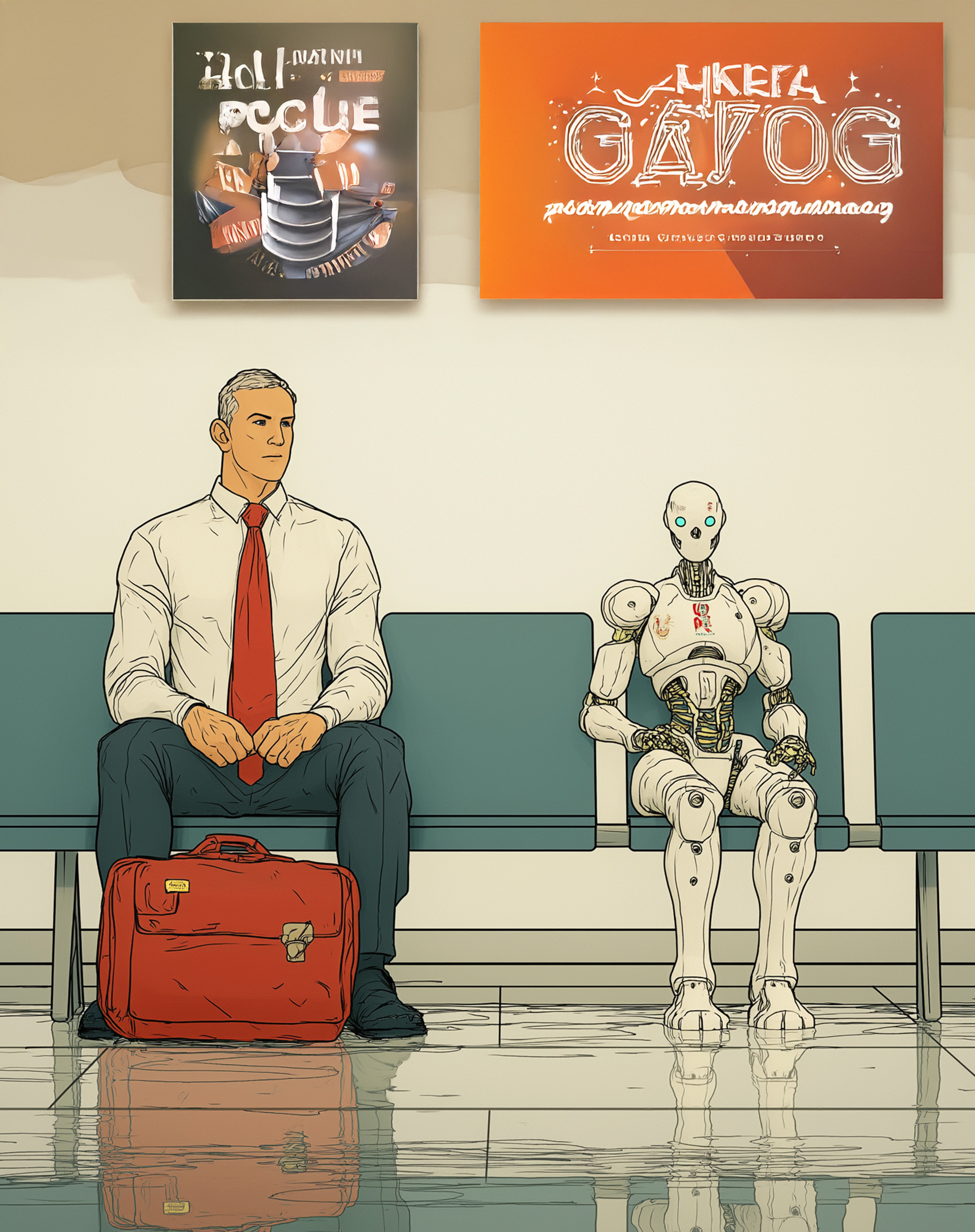Last year, I asked Microsoft CoPilot to create an itinerary for a long weekend to Barcelona. We sort of followed it, because we’re human and easily distracted by other things, like sangria and shopping. We ignored its suggestion to book tickets for the Sagrada Familia well in advance, confident all would be fine. Instead, we ended up standing outside it, pouting, and eventually decided that at least this gave us a reason to return.
According to research by EY AI Sentiment Index 2025, this kind of AI use is what British people feel most comfortable with. Their study showed that 70% of UK respondents had used AI in their daily lives in the last six months. However, only 44% had used AI in a professional setting during the same period. This is lower than the global average of 67%.
What are Brits comfortable using AI for?
British people tend to use AI more in their personal lives than at work. But even in personal use, they lag behind the global average, which is 82%. The main areas Brits use AI for include:
- 32% for customer support (think chatbots that can be frustrating but help you reach a human agent)
- 20% for finding the best route when driving or travelling (like my Barcelona trip)
- 14% for identifying, researching, or recommending purchases (because trawling through Amazon in search of a toaster can be overwhelming)
Why Brits trust AI for toasters but not work
AI plays a big role in the workplace, especially for writing or editing content. Globally, 31% of people use AI for this, but only 19% of Brits do. The gap is similar for generating new ideas – 27% globally, compared to 17% in the UK.
AI sparks strong feelings. Scroll through LinkedIn, and you’ll find passionate believers, AI skeptics, and even debates over whether the em dash (–) is a sign of AI writing or just flair. The EY Sentiment Index measured feelings about AI based on personal comfort, perceived impact, and excitement for the future. The UK scored only 54 out of 100, below the global average of 68.
Younger generations – Gen Z and Millennials – are more pro-AI than older groups.
Privacy, security, and reliability are key concerns for British people. This explains why they feel safer using AI at home than at work. A bad holiday itinerary is annoying but low stakes. In contrast, unreliable AI output or data breaches at work have bigger consequences.
In fact, 41% of UK respondents worry that AI will make them less intelligent. Using AI can feel like cheating. And if we cheat at work, are we making ourselves redundant?
AI as a creative partner, not as a replacement
As a writer, I often hear AI will replace me. But I see it differently. AI is a creative partner – a useful tool in a writer’s toolkit. It helps with research and brainstorming. I use it like an interactive thesaurus: “Find me another word meaning this,” or “List words with more positive connotations.” It’s a helper, not a threat.
To AI or not to AI? Does it matter either way?
Some imagine a future where AI disappears, and the 66% of Brits who avoid AI at work carry on unchanged. Meanwhile, 67% of the global workforce struggles without AI’s help.
Others fear the UK will fall behind if it doesn’t embrace AI innovation. The global workforce will work faster and smarter, while Brits stick to old ways.
This is the tension: seeing AI as a takeover versus a tool.
Both views might be exaggerated. Only time will tell what reality unfolds.
How employers can bridge the AI gap
Employers wanting to integrate AI should start by listening to employees’ concerns. Address privacy and security clearly. Define what company information can be shared with AI and what must remain private.
Providing education and transparent policies builds trust. This helps employees use AI confidently without fear.
Striking the Balance: Embracing AI Without Losing Ourselves
The AI debate isn’t just about technology. It’s about trust, control, and culture. British caution reflects real worries about privacy, security, and output quality. These worries are valid. A bad holiday plan is one thing. But risks to work reputation or client data are more serious.
Avoiding AI won’t stop the global wave of innovation. The UK risks falling behind if it doesn’t find a middle ground between skepticism and adoption.
For employers, the path is clear: listen, set boundaries, and educate. AI isn’t about replacing human creativity. It’s about helping people work smarter.
So, is AI perfect for travel plans but risky for work? Maybe. But it can also help British businesses stay competitive – if we learn to use it well.
AI won’t write your novel or close your deal. But it can be the partner that helps you get there faster and with more confidence. The future of work isn’t AI versus us – it’s AI with us.
To explore how TMP Worldwide leads the way in digital innovation for employer branding and recruitment marketing, read Digital Innovation in Employer Branding & Recruitment Marketing. Learn how tools like the Outthink Index help businesses navigate the digital landscape and build stronger brands.
For insights into the risks and rewards of AI in hiring, check out AI in Recruitment: Risky Business or Smart Move?. This article explores ethical AI use in recruitment and offers best practices.






